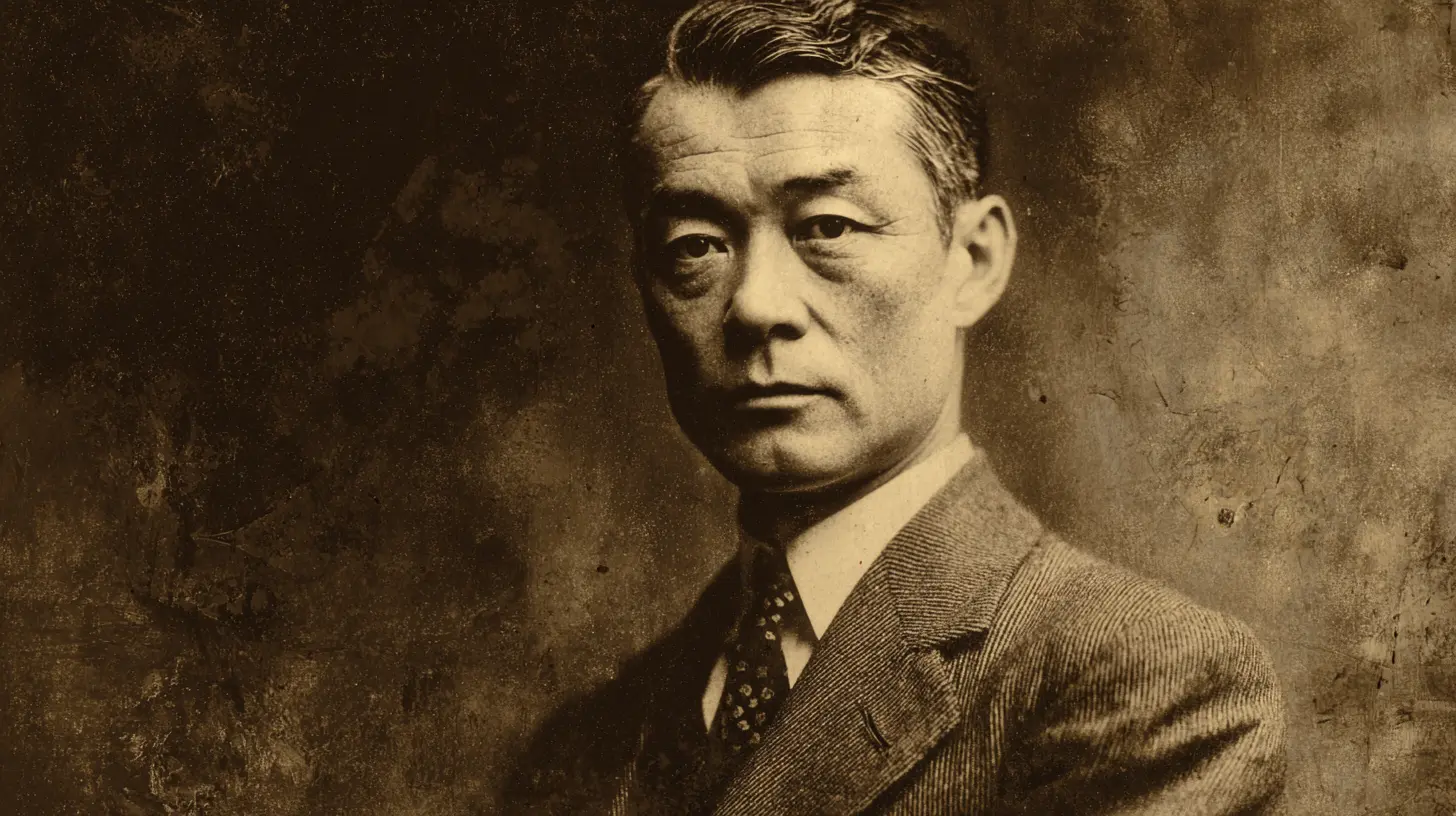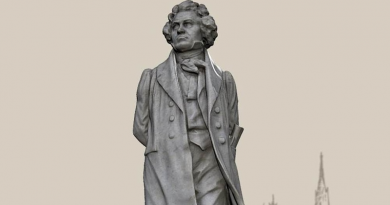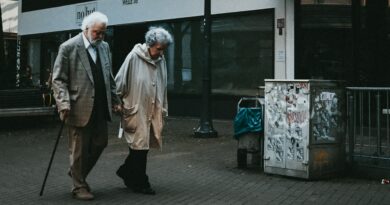Story | Chiune Sugihara: The Diplomat Who Saved Lives with Pen and Courage
Em meio à escuridão da Segunda Guerra Mundial, uma história de heroísmo silencioso brilha intensamente. Conheça Chiune Sugihara, o diplomata japonês apelidado de “Schindler do Japão”, que, contrariando ordens diretas de seu governo, usou sua caneta para desafiar a burocracia e a perseguição nazista. Arriscando sua própria carreira e segurança, ele trabalhou incansavelmente, dia e noite, para emitir milhares de vistos que se tornaram bilhetes de vida para judeus desesperados em busca de liberdade. Descubra como um ato de coragem e compaixão de um único homem salvou a vida de dezenas de milhares de pessoas, deixando um legado inabalável que ecoa até hoje.
| Audio | |
|---|---|
Normal | Slow |
| English Transcript | Tradução |
| Chiune Sugihara: The Diplomat Who Saved Lives with Pen and Courage | Chiune Sugihara: O Diplomata que Salvou Vidas com Caneta e Coragem |
| During World War II, as the world faced one of the greatest humanitarian crises in its history, an unlikely figure emerged as a quiet hero: "Chiune Sugihara", the Japanese diplomat known as the "Schindler of Japan." Armed with only a pen and an unwavering moral compass, Sugihara risked everything to save the lives of thousands of Jews at the height of the Holocaust. | Durante a Segunda Guerra Mundial, enquanto o mundo enfrentava uma das maiores crises humanitárias de sua história, uma figura improvável emergiu como um herói silencioso: Chiune Sugihara, o diplomata japonês conhecido como o "Schindler do Japão". Armado apenas com uma caneta e uma consciência moral inabalável, Sugihara arriscou tudo para salvar a vida de milhares de judeus no auge do Holocausto. |
| In 1939, Sugihara was appointed vice-consul for Japan in Kaunas, Lithuania, a strategic post in Eastern Europe. At that time, World War II had already begun, and Nazi Germany was consolidating its control over a large part of Europe. Lithuania, which was under Soviet occupation following the Molotov-Ribbentrop Pact, would soon become the scene of Nazi devastation after the German invasion of the Soviet Union in 1941. | Em 1939, Sugihara foi nomeado vice-cônsul do Japão em Kaunas, na Lituânia, um posto estratégico no leste da Europa. Naquele momento, a Segunda Guerra Mundial já havia começado, e a Alemanha nazista consolidava seu controle sobre grande parte da Europa. Lituânia, que estava sob a ocupação soviética após o pacto Molotov-Ribbentrop, logo se tornaria palco de devastação nazista após a invasão da União Soviética pelos alemães em 1941. |
| In this atmosphere of growing persecution and violence, thousands of European Jews desperately tried to escape the clutches of the Nazi regime, seeking safe havens on the other side of the world. However, finding an escape route was almost impossible due to many nations' refusal to accept Jewish refugees and the complex bureaucratic requirements for visas and permits. | Nessa atmosfera de crescente perseguição e violência, milhares de judeus europeus tentavam desesperadamente escapar das garras do regime nazista, buscando terras seguras no outro lado do mundo. No entanto, encontrar uma rota de fuga era quase impossível, devido à recusa de muitas nações em aceitar refugiados judeus e às complexas exigências burocráticas de vistos e permissões. |
| In the summer of 1940, while Sugihara was serving as vice-consul in Kaunas, hundreds of desperate refugees—many of them Polish Jews who had fled the Nazi invasion in their country—went to the Japanese consulate, pleading for help. They asked for transit visas that would allow them to travel through Japanese territory to safe countries, such as Curaçao, a Dutch colony in the Caribbean, which did not require entry permission. | No verão de 1940, enquanto Sugihara servia como vice-cônsul em Kaunas, centenas de refugiados desesperados — muitos deles judeus poloneses fugidos da invasão nazista em seu país — se dirigiram ao consulado japonês, implorando por ajuda. Eles pediam vistos de trânsito que lhes permitissem viajar pelo território japonês até países seguros, como Curaçao, uma colônia holandesa no Caribe, que não exigia permissão para entrada. |
| Chiune Sugihara faced a moral dilemma. Officially, he was forbidden by the Japanese government from issuing visas without direct approval from Tokyo. His requests to obtain permission were repeatedly denied. Even so, he decided to disobey these orders in the name of humanity. He knew that blindly following regulations would mean condemning thousands of innocent people to their deaths. | Chiune Sugihara enfrentou um dilema moral. Oficialmente, ele estava proibido pelo governo japonês de emitir vistos sem aprovação direta de Tóquio. Suas solicitações para obter permissão foram repetidamente negadas. Mesmo assim, ele decidiu desobedecer essas ordens em nome da humanidade. Ele sabia que seguir cegamente os regulamentos significaria condenar milhares de inocentes à morte. |
| Going against his government's direct orders, Sugihara began issuing transit visas to the Jewish refugees, allowing many to escape the Nazi occupation. For weeks, he worked tirelessly, often filling out documents manually for hours on end, from dawn until late at night. On some days, he hand-wrote more than 300 individual visas—a task that would normally take a single diplomat weeks to complete. | Contrariando as ordens diretas de seu governo, Sugihara começou a emitir vistos de trânsito para os refugiados judeus, permitindo que muitos escapassem da ocupação nazista. Durante semanas, ele trabalhou incansavelmente, muitas vezes preenchendo documentos manualmente por horas a fio, desde o amanhecer até tarde da noite. Em alguns dias, escreveu à mão mais de 300 vistos individuais — uma tarefa que normalmente levaria semanas para ser concluída por um único diplomata. |
| Even when he was forced to close the consulate and leave Kaunas in September 1940, he continued to issue visas. Reports state that he was writing visas even on the train that was taking him away from Lithuania, handing the documents to refugees up until the very last moment. | Mesmo quando ele foi obrigado a fechar o consulado e deixar Kaunas em setembro de 1940, ele continuou emitindo vistos. Relatos afirmam que ele escrevia vistos até no trem que o conduzia para longe da Lituânia, entregando os documentos aos refugiados até o último momento. |
| It is estimated that Sugihara issued around "6,000 transit visas", allowing more than "40,000 people"—when considering the descendants who continued their lives in safety after the war—to have a chance at survival. The refugees followed a route that took them via the Trans-Siberian Railway to Vladivostok, Russia, from where they would embark for Japan and, often, another safe location. | Estima-se que Sugihara tenha emitido cerca de 6.000 vistos de trânsito, permitindo que mais de 40.000 pessoas — considerando os descendentes que continuaram suas vidas em segurança depois da guerra — tivessem uma chance de sobreviver. Os refugiados seguiram por uma rota que os levava pela Linha Transiberiana até Vladivostok, na Rússia, de onde embarcavam para o Japão e, muitas vezes, para outra localidade segura. |
| His efforts meant the difference between life and death for thousands of European Jews. He never sought fame or recognition for his actions, even as his career suffered the consequences of his disobedience of official orders. | Seus esforços representaram a diferença entre a vida e a morte para milhares de judeus europeus. Ele jamais buscou fama ou reconhecimento por suas ações, mesmo quando sua carreira sofreu as consequências dessa desobediência às ordens oficiais. |
| After the war, Sugihara was forced to leave the diplomatic service. In 1945, when Japan was defeated, he was dismissed from the Ministry of Foreign Affairs under circumstances that were never officially justified but which many believe were related to his disobedience in Kaunas. Living a modest life, he worked in small jobs and stayed out of the limelight. | Após a guerra, Sugihara foi forçado a deixar o serviço diplomático. Em 1945, quando o Japão foi derrotado, ele foi demitido do Ministério das Relações Exteriores sob circunstâncias que nunca foram oficialmente justificadas, mas que muitos acreditam estar relacionadas à sua desobediência em Kaunas. Levando uma vida modesta, ele trabalhou em pequenos empregos e viveu longe dos holofotes. |
| For decades, his heroic efforts remained unknown until survivors recounted their stories and spread his legacy. In 1985, he was recognized by Yad Vashem, Israel's official Holocaust memorial, as one of the Righteous Among the Nations, the highest honor granted to non-Jews who risked their lives to save Jews during the Holocaust. | Por décadas, seus esforços heroicos permaneceram desconhecidos até que sobreviventes resgataram suas histórias e espalharam seu legado. Em 1985, ele foi reconhecido pelo Yad Vashem, o memorial oficial do Holocausto em Israel, como um dos Justos entre as Nações, o mais alto título concedido a não judeus que arriscaram suas vidas para salvar judeus durante o Holocausto. |
| Chiune Sugihara died in 1986 at the age of 86 with little material wealth but an unwavering moral legacy. He is remembered as a shining example of how a single individual, guided by human values and courage, can save countless lives even in the face of the greatest horrors. | Chiune Sugihara morreu em 1986, aos 86 anos, com pouca riqueza material, mas deixando um legado moral inabalável. Ele é lembrado como um exemplo brilhante de como um único indivíduo, guiado por valores humanos e coragem, pode salvar incontáveis vidas mesmo diante do maior dos horrores. |
| Today, the world continues to celebrate his quiet, yet extraordinary, actions that prove heroism is not always accompanied by fame or power but is often found in the simple—and profoundly difficult—choice to do what is right. | Hoje, o mundo continua a celebrar suas ações silenciosas, mas extraordinárias, que provam que o heroísmo nem sempre é acompanhado de fama ou poder, mas, muitas vezes, está na escolha simples — e profundamente difícil — de fazer o que é certo. |
Contagem de palavras
A tabela abaixo exibe as palavras encontradas nesta música/vídeo/texto, bem como o número de vezes em que aparecem.
Veja também: Para que serve esta tabela?
| Freq. | Palavra | Freq. | Palavra | Freq. | Palavra |
|---|---|---|---|---|---|
| 48 | the | 26 | of | 23 | to |
| 20 | in | 13 | was | 13 | he |
| 12 | and | 12 | a | 10 | that |
| 10 | sugihara | 10 | his | 10 | for |
| 8 | as | 7 | visas | 6 | jews |
| 6 | from | 5 | would | 5 | world |
| 5 | their | 5 | nazi | 5 | lives |
| 5 | is | 5 | even | 5 | at |
| 4 | who | 4 | thousands | 4 | refugees |
| 4 | on | 4 | kaunas | 4 | japanese |
| 4 | japan | 4 | chiune | 4 | by |
| 4 | an | 3 | with | 3 | which |
| 3 | when | 3 | were | 3 | war |
| 3 | until | 3 | transit | 3 | them |
| 3 | save | 3 | safe | 3 | orders |
| 3 | often | 3 | moral | 3 | many |
| 3 | lithuania | 3 | holocaust | 3 | escape |
| 3 | diplomat | 3 | but | 3 | after |
| 2 | worked | 2 | weeks | 2 | vice |
| 2 | unwavering | 2 | under | 2 | they |
| 2 | than | 2 | soviet | 2 | single |
| 2 | route | 2 | risked | 2 | quiet |
| 2 | permission | 2 | people | 2 | pen |
| 2 | out | 2 | or | 2 | one |
| 2 | officially | 2 | official | 2 | occupation |
| 2 | not | 2 | never | 2 | nations |
| 2 | more | 2 | life | 2 | legacy |
| 2 | leave | 2 | jewish | 2 | its |
| 2 | issuing | 2 | invasion | 2 | individual |
| 2 | ii | 2 | had | 2 | greatest |
| 2 | government | 2 | forced | 2 | following |
| 2 | fame | 2 | faced | 2 | european |
| 2 | europe | 2 | efforts | 2 | during |
| 2 | documents | 2 | disobedience | 2 | direct |
| 2 | courage | 2 | continued | 2 | consulate |
| 2 | consul | 2 | allowing | 2 | actions |
| 1 | yet | 1 | yad | 1 | wrote |
| 1 | writing | 1 | without | 1 | while |
| 1 | where | 1 | what | 1 | wealth |
| 1 | warto | 1 | vladivostok | 1 | visasa |
| 1 | violence | 1 | via | 1 | very |
| 1 | vashem | 1 | values | 1 | up |
| 1 | unlikely | 1 | unknown | 1 | union |
| 1 | tried | 1 | travel | 1 | trans |
| 1 | train | 1 | took | 1 | tokyo |
| 1 | today | 1 | tirelessly | 1 | time |
| 1 | through | 1 | this | 1 | these |
| 1 | territory | 1 | task | 1 | taking |
| 1 | take | 1 | survivors | 1 | survival |
| 1 | summer | 1 | suffered | 1 | such |
| 1 | strategic | 1 | stories | 1 | stayed |
| 1 | state | 1 | spread | 1 | sought |
| 1 | soon | 1 | some | 1 | so |
| 1 | small | 1 | simpleand | 1 | side |
| 1 | siberian | 1 | shining | 1 | serving |
| 1 | service | 1 | september | 1 | seeking |
| 1 | schindler | 1 | scene | 1 | saved |
| 1 | safety | 1 | russia | 1 | righteous |
| 1 | right | 1 | ribbentrop | 1 | requirements |
| 1 | require | 1 | requests | 1 | reports |
| 1 | repeatedly | 1 | remembered | 1 | remained |
| 1 | related | 1 | regulations | 1 | regime |
| 1 | refusal | 1 | refugeesmany | 1 | recounted |
| 1 | recognized | 1 | recognition | 1 | railway |
| 1 | prove | 1 | profoundly | 1 | power |
| 1 | post | 1 | polish | 1 | pleading |
| 1 | persecution | 1 | permits | 1 | part |
| 1 | pact | 1 | over | 1 | other |
| 1 | only | 1 | obtain | 1 | normally |
| 1 | non | 1 | night | 1 | name |
| 1 | moment | 1 | molotov | 1 | modest |
| 1 | ministry | 1 | memorial | 1 | meant |
| 1 | mean | 1 | material | 1 | manually |
| 1 | location | 1 | living | 1 | little |
| 1 | limelight | 1 | late | 1 | last |
| 1 | large | 1 | known | 1 | knew |
| 1 | justified | 1 | jobs | 1 | it |
| 1 | issued | 1 | issue | 1 | israel |
| 1 | innocent | 1 | impossible | 1 | hundreds |
| 1 | humanity | 1 | humanitarian | 1 | human |
| 1 | however | 1 | how | 1 | hours |
| 1 | horrors | 1 | honor | 1 | history |
| 1 | him | 1 | highest | 1 | heroism |
| 1 | heroic | 1 | hero | 1 | help |
| 1 | height | 1 | havens | 1 | have |
| 1 | handing | 1 | hand | 1 | guided |
| 1 | growing | 1 | granted | 1 | going |
| 1 | germany | 1 | german | 1 | found |
| 1 | foreign | 1 | forbidden | 1 | followed |
| 1 | fled | 1 | finding | 1 | filling |
| 1 | figure | 1 | face | 1 | extraordinary |
| 1 | example | 1 | everything | 1 | estimated |
| 1 | entry | 1 | end | 1 | emerged |
| 1 | embark | 1 | eastern | 1 | dutch |
| 1 | due | 1 | do | 1 | disobey |
| 1 | dismissed | 1 | diplomatic | 1 | dilemma |
| 1 | difficultchoice | 1 | difference | 1 | died |
| 1 | did | 1 | devastation | 1 | desperately |
| 1 | desperate | 1 | descendants | 1 | denied |
| 1 | defeated | 1 | decided | 1 | decades |
| 1 | deaths | 1 | death | 1 | days |
| 1 | dawn | 1 | cura'ao | 1 | crises |
| 1 | countrywent | 1 | countries | 1 | countless |
| 1 | control | 1 | continues | 1 | consolidating |
| 1 | considering | 1 | consequences | 1 | condemning |
| 1 | complex | 1 | complete | 1 | compass |
| 1 | colony | 1 | clutches | 1 | close |
| 1 | circumstances | 1 | chance | 1 | celebrate |
| 1 | caribbean | 1 | career | 1 | can |
| 1 | bureaucratic | 1 | blindly | 1 | between |
| 1 | believe | 1 | begun | 1 | began |
| 1 | become | 1 | away | 1 | atmosphere |
| 1 | asked | 1 | around | 1 | armed |
| 1 | approval | 1 | appointed | 1 | another |
| 1 | among | 1 | always | 1 | already |
| 1 | almost | 1 | allow | 1 | age |
| 1 | against | 1 | affairs | 1 | accompanied |
| 1 | accept |









